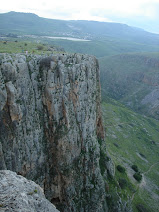I was asked to give the invocation for the Judson University 10 AM graduation service. At first I was going to pray extemporaneously, but after thinking of the tragedy in Connecticut yesterday, I felt that moment should be lifted up in our community. I decided to take a moment and write out my prayer.
Kind and Gracious God,
We come to you today in a time of celebration in the middle of a season of celebration. We are grateful for these times in life when you remind us that there is a time for joy and a time to laugh. But, we are also reminded after the events of yesterday, that today is not a day of joy for everyone.
We want to offer up to you the community in Connecticut that experienced such terrible loss. We pray your grace showers down on those for whom today is a time to weep and a time to mourn. We pray that children and adults whose lives are forever changed find comfort.
In these times of tragedy, we seek answers for the unanswerable and try to make sense of the senseless. We look to the hills and wonder where our help comes from. Help us to remember that our help come from the Lord God, the maker of heaven and earth. Help us to remember that you bring Creation from Chaos; you bring Resurrection from Death; and you bring light to dispel the darkness.
We pray, O God, that Judson University continues to be a beacon of your light into the darkness of this world. We pray for the graduates that we send forth today. We honor their hard work. We celebrate their accomplishments, and we trust them to your care as we send them forward.
We pray that they take your light to fight back the darkness of this world. We pray that they are your hands and feet, and we pray that they are walking testimonies to your miraculous power to give hope to the hopeless.
We pray for this time as we honor them. May the words of our mouths and the meditations of our hearts together always be acceptable in your sight, O God, our Rock and Redeemer,
Amen.

